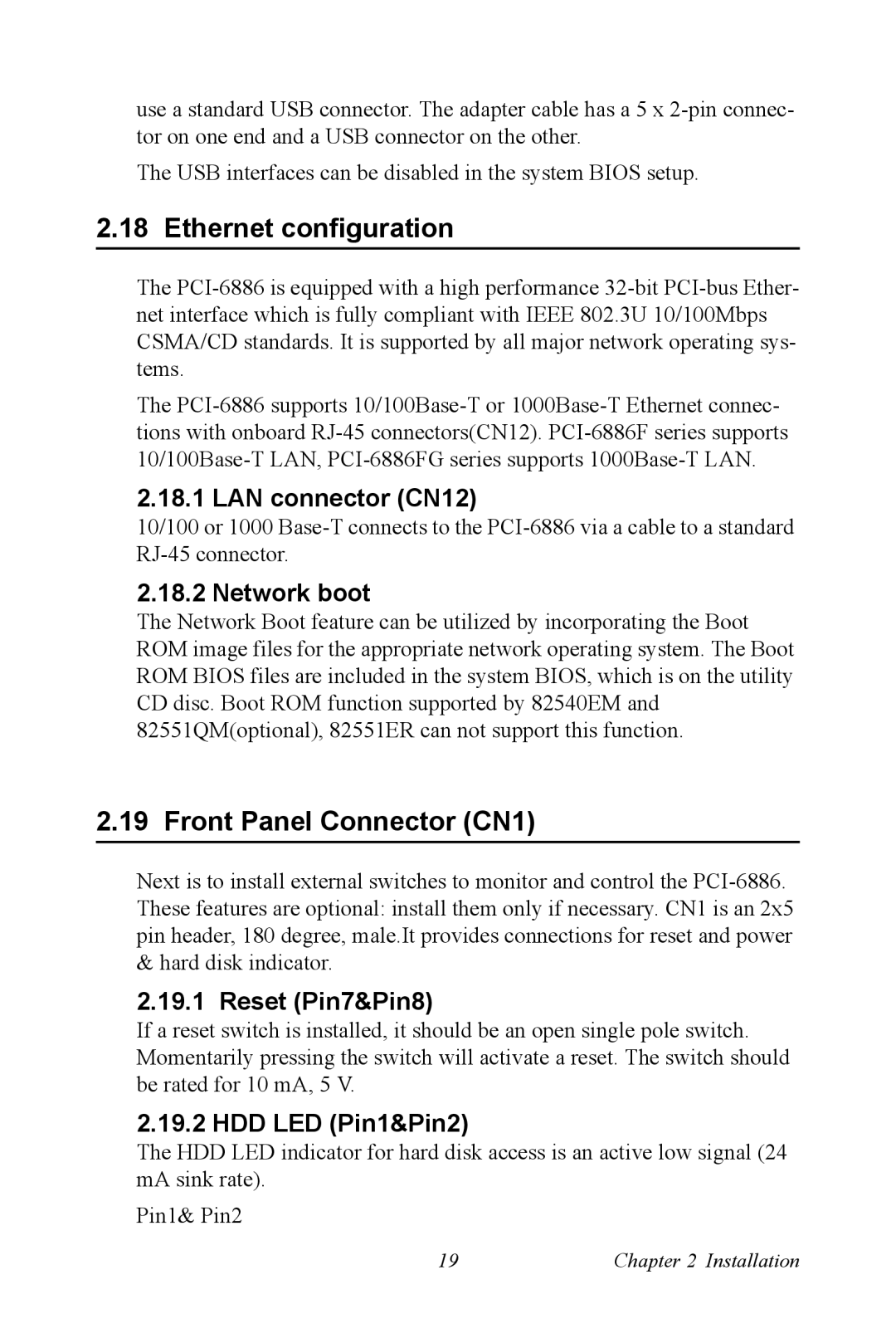PCI-6886 specifications
The Intel PCI-6886 is a versatile, highly integrated chipset designed for desktop computing solutions, catering predominantly to the needs of the OEM market. This chipset stands as a significant part of Intel's efforts to enhance performance and efficiency in personal computing.One of the main features of the PCI-6886 is its support for a dual IDE interface, enabling fast data transfer rates between the motherboard and connected storage devices like hard drives and CD-ROMs. It supports a maximum of four IDE devices, enhancing the system's expandability and providing users with the flexibility to increase storage capacity as needed.
The PCI-6886 supports a range of Intel processors, specifically designed to work seamlessly with the Pentium architecture. This compatibility makes it an ideal choice for system builders looking to create robust and reliable PCs that can handle various applications ranging from business to leisure activities.
Moreover, the PCI-6886 incorporates advanced power management technologies, allowing for substantial energy savings. Through its capabilities to manage CPU and peripheral usage, the chipset helps reduce power consumption, an essential feature in today’s environmentally conscious market. These power-saving features are particularly valuable in mobile computing, where battery life is crucial.
Furthermore, the PCI-6886 boasts an advanced PCI (Peripheral Component Interconnect) bus architecture. This facilitates the connection and communication of multiple peripheral devices without compromising system performance. With its support for a wide array of PCI devices, the chipset contributes significantly to the overall versatility of the computing platform.
The integration of graphics support is another impressive aspect of the PCI-6886. It comes equipped with a 2D/3D graphics accelerator, allowing for improved visual performance in gaming and multimedia applications. This integration helps reduce system costs and simplifies the design process for manufacturers by minimizing the need for additional graphics cards.
In conclusion, the Intel PCI-6886 chipset represents a well-rounded solution for desktop systems, combining powerful performance with energy efficiency and expandability. Its support for various processors, advanced IDE and PCI features, along with integrated graphics capabilities, make it a popular choice for OEMs and builders aiming to deliver reliable and effective computing experiences. With continued advancements in technology, the PCI-6886 remains relevant, adapting to the evolving needs of the computing landscape.

